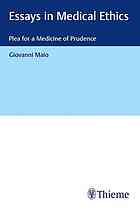

Most ebook files are in PDF format, so you can easily read them using various software such as Foxit Reader or directly on the Google Chrome browser.
Some ebook files are released by publishers in other formats such as .awz, .mobi, .epub, .fb2, etc. You may need to install specific software to read these formats on mobile/PC, such as Calibre.
Please read the tutorial at this link: https://ebookbell.com/faq
We offer FREE conversion to the popular formats you request; however, this may take some time. Therefore, right after payment, please email us, and we will try to provide the service as quickly as possible.
For some exceptional file formats or broken links (if any), please refrain from opening any disputes. Instead, email us first, and we will try to assist within a maximum of 6 hours.
EbookBell Team

4.1
60 reviewsModern medicine suggests omnipotence and an image of life as something that can be perfected at any time. Yet our view of things changes when disease throws us into an existential crisis. Then we seek human answers and feel misunderstood and abandoned in the system of modern medicine. Professor Giovanni Maio, the eloquent advocate of a new culture of medicine, poses fundamental questions in this book that no one can really avoid: Where are the promises of reproductive and transplantation medicine leading us? To what extent can health be made, and to what extent is it a gift? Does "prettier, better, stronger" promise us greater happiness? Why is the question of organ donation more difficult than is suggested to us? Does being old have its own intrinsic value? How can we acquire an attitude towards dying that does not leave us feeling powerless? Giovanni Maio's profound plea for an ethics of prudence opens up hitherto unknown perspectives. In this way we could free ourselves from the belief in perfection and find our way to a new serenity as a condition for a good life
Modern medicine suggests omnipotence and an image of life as something that can be perfected at any time. Yet our view of things changes when disease throws us into an existential crisis. Then we seek human answers and feel misunderstood and abandoned in the system of modern medicine. Professor Giovanni Maio, the eloquent advocate of a new culture of medicine, poses fundamental questions in this book that no one can really avoid: Where are the promises of reproductive and transplantation medicine leading us? To what extent can health be made, and to what extent is it a gift? Does "prettier, better, stronger" promise us greater happiness? Why is the question of organ donation more difficult than is suggested to us? Does being old have its own intrinsic value? How can we acquire an attitude towards dying that does not leave us feeling powerless? Giovanni Maio's profound plea for an ethics of prudence opens up hitherto unknown perspectives. In this way we could free ourselves from the belief in perfection and find our way to a new serenity as a condition for a good life